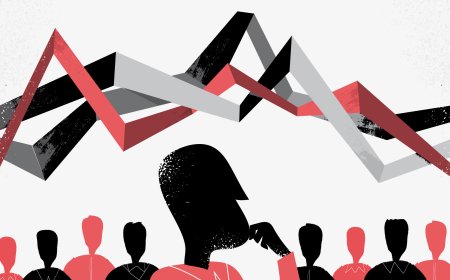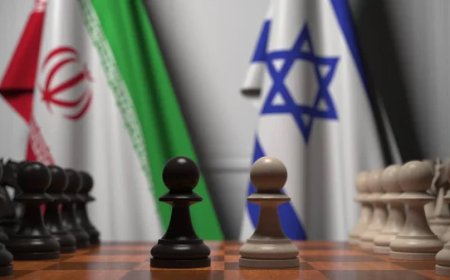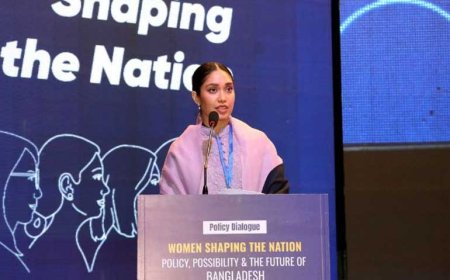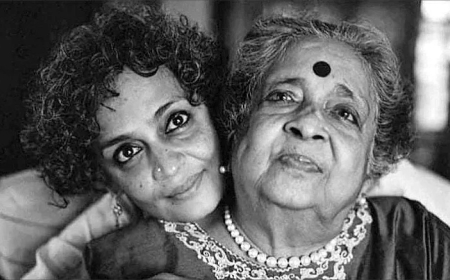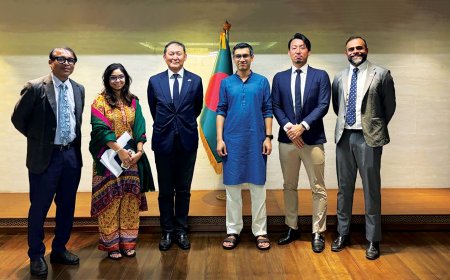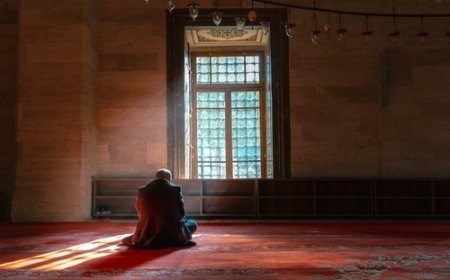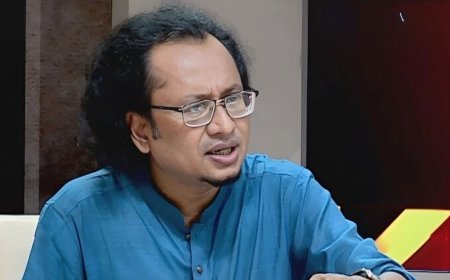The Rising Tide of Right-Wing Politics in Bangladesh: Why Mirza Fakhrul’s Warning Matters
The AL exaggerated the threat of extremism for political theatrics. The current government is doing the opposite -- denying its existence while catering to populist sentiments. In the process, national security is being compromised.
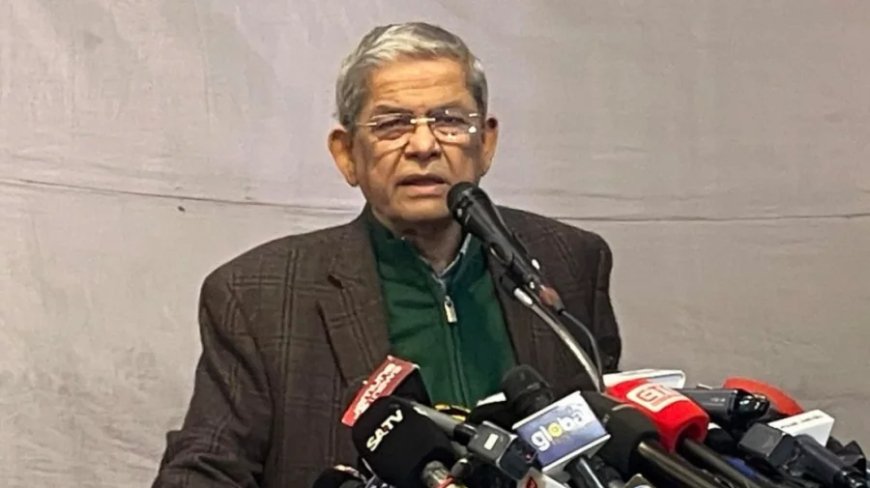
The recent interview of Mirza Fakhrul Islam Alamgir, Secretary General of the BNP, published in Prothom Alo under the headline: “I See the Rise of Right-Wing Forces in Politics, and I Am Concerned,” has sparked widespread discussion and criticism.
On social media, one person commented: “Mirza Fakhrul is a leftist, that’s why he sees a rise in right-wing politics.”
Another wrote: “Mirza Fakhrul is trying to scare people with the ghost of so-called right-wing politics.”
The political leanings of those making such comments are quite evident. One of the clear objectives of this backlash is to silence Mr Alamgir.
In today’s Bangladesh, we are witnessing a populist and vengeful style of politics. A new segment of the civil society and certain political figures have embraced a sweeping populist narrative. Among the few politicians who are resisting this tide and standing up for liberal democracy, Mirza Fakhrul Islam Alamgir is one of the most vocal. When he speaks of the rise of right-wing politics in Bangladesh, it triggers a reaction from right-wing politicians and their ideological allies. They rally to attack him and others who raise similar concerns.
Before discussing right-wing politics, it is useful to define the term. I find Asef Bayat’s explanation regarding right-wing politics particularly illuminating. In his book Revolution Without Revolutionaries (2017), Bayat defines Islamic right-wing politics as part of a broader global right-wing trend, where religion, nationalism, and authoritarianism operate in unison. Unlike leftist revolutionaries, Islamists tend to align themselves with religious elites and military establishments to achieve their goals.
For example, Egypt’s Al-Nour Party adheres to a Salafi ideology -- while it upholds religious conservatism, it also shows deference to military rule. In Pakistan, Jamaat-e-Islami participates in democratic processes with the aim of establishing an Islamic state and enforcing religious norms.
Similarly, in Bangladesh, parties like Islami Andolon Bangladesh and those associated with the Charmonai school take part in elections while vocally opposing women’s rights, secularism, and cultural liberalism.
Hence, rather than taking a monolithic view of right-wing or Islamist politics, it is important to understand it within the country’s specific context.
In Bangladesh, Islamist or right-wing political groups can be broadly divided into two categories. One group engages in formal democratic politics. They are participating in elections and grounded in conservative interpretations of Islam. This stream seeks to place religious values at the centre of political and social life and is often linked with nationalism, authoritarianism, and patriarchal views. Jamaat-e-Islami Bangladesh is a key example of this group.
On the other hand, there exists another stream that rejects formal electoral politics altogether. They want to establish a caliphate through armed struggle, often with links to international extremist movements. It is important to mention that former Awami League governments exploited these differences for their political gain. They lumped all Islamist groups together under the label of “militants.”
Moreover, to combat terrorism, they engaged in widespread human rights violations. This approach created a serious crisis. While extremist threats are indeed present, as they are in any country, mainstream right-wing groups in Bangladesh often deny the threat posed by more radical Islamist elements. Yet we continue to see growing signs of their presence.
Let us consider a few recent incidents that clearly demonstrate the growing threat of ultra-right-wing politics in Bangladesh. The Dissent reported that a young man named Md Rakib Al Hasan was arrested in Mymensingh by the Anti-Terrorism Unit (ATU) on suspicion of links to a banned terrorist organization. A case was filed against him under the Anti-Terrorism Act after his arrest on July 10.
Rakib’s father, a day labourer named Lal Chan Mia, told The Dissent: “My son lived in town to attend college. I’m a poor man -- I don’t understand what’s going on.” Rakib’s Facebook account was found to contain several posts supporting the ideology of the international terrorist organization ISIS. On May 24, he posted a picture of himself with the caption: “Rebel, revolutionary, fundamentalist-- I am a jihadist.” He had shared multiple ISIS execution videos, including one where a Russian national was beheaded. Alongside the video, Rakib wrote: “Slaughtering a Russian pig to feed to the Hindus. Will slaughter Hindus and feed them to dogs.”
Rakib’s father may have believed that his son would pursue an education and lift their family out of poverty. But we are left to ask: who led this 20-year-old down a path of hatred? Unfortunately, asking such questions now comes at a cost.
Another Dissent report revealed that in July, Bangladeshi law enforcement arrested two individuals -- Ahmed Faisal (33) and Shamin Mahfuz (49) -- on charges of being linked to Tehrik-i-Taliban Pakistan (TTP), a Pakistan-based extremist group.
In late April, a Bangladeshi youth named Ahmed Zubair (23) was reportedly killed while fighting alongside TTP forces against the Pakistani military on the Pakistan-Afghanistan border. The Dissent first reported on this on May 15, noting that several other Bangladeshis were also fighting for TTP in the region.
Faisal was initially detained on May 22 and handed over to the ATU, which released him without filing a case. However, after The Daily Star published a follow-up report on July 14, he was rearrested and formally charged.
What do these incidents reveal? They reveal that the government is dangerously indifferent to the threat of extremism.
For instance, the Dhaka Metropolitan Police (DMP) Commissioner claimed ignorance about the Holey Artisan attack, saying to journalists: “What terrorists?” According to his framing, the five perpetrators of the 2016 attack -- Nibras Islam, Shafiqul Islam, Mir Samih Mobasher, Rohan Ibn Imtiaz, and Khairul Islam -- were merely “muggers.” When a senior police officer makes such comments, it raises serious concerns among citizens.
Just as previous Awami League governments exaggerated the threat of extremism for political theatrics, the current government appears to be doing the opposite -- denying its existence entirely while catering to populist sentiments. In the process, national security is being compromised.
This is precisely why voices like Mirza Fakhrul’s are important. He is among the few political leaders who have consistently taken a stand -- first against the previous government’s misuse of “jihadist” labels for political gain, and now against the genuine threat posed by the growing ultra-right-wing current in Bangladesh. He understands its political significance and does not take it lightly.
Such understanding is unwelcome to those who support the spread of ultra-right-wing politics in Bangladesh, and who oppose democracy, human rights, and women’s rights. Their numbers may be small, but ignoring them would be a grave mistake.
Asif Bin Ali is a Doctoral Fellow at Georgia State University and the Host of Globalist Podcast. He can be reached at [email protected]
What's Your Reaction?















